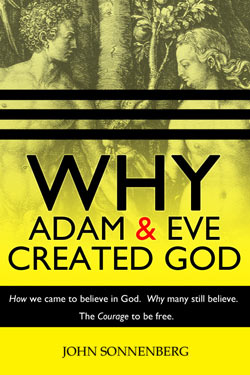Chapter 35 – Adam, Eve, and Sex
Western sexuality began in the Garden of Eden. Or to put it a bit more precisely; Judaeo-Christian-Muslim sexual attitudes originate with the story of first two people, Adam and Eve. We all have heard the myth of how mankind fell from God’s grace. The not-so-subtle undertones of these first chapters in Genesis have framed men and women’s roles in ever since. The message is very clear. Man(not women) was created by God as the pinnacle of his creation—created in the image of God (Gen. 1:27). Woman was created out of a man, as an afterthought, for man’s purpose(Gen. 2:18). It is woman’s fault man sinned(Gen. 3:6). It is woman’s fault people no longer live in paradise(Gen. 3:12). The woman is cursed with pain during childbirth(Gen. 3:16). Because Eve ate the fruit of knowledge, the husband is to rule over the woman(Gen. 3:16). Nakedness is something to be ashamed of(Gen. 3:7). The creation story ends with a genealogy tracing human ancestry through the men and ignoring the women’s lineage—even claiming that this man or that man “begat” so-and-so! Over and over the message of man’s predominance over woman is emphasized. One can only wonder at how different life for all women over the last few thousand years would be—if only this fable had never been told.
This is only a short summary of this chapter. To find out more, please read Why Adam and Eve Created God.
